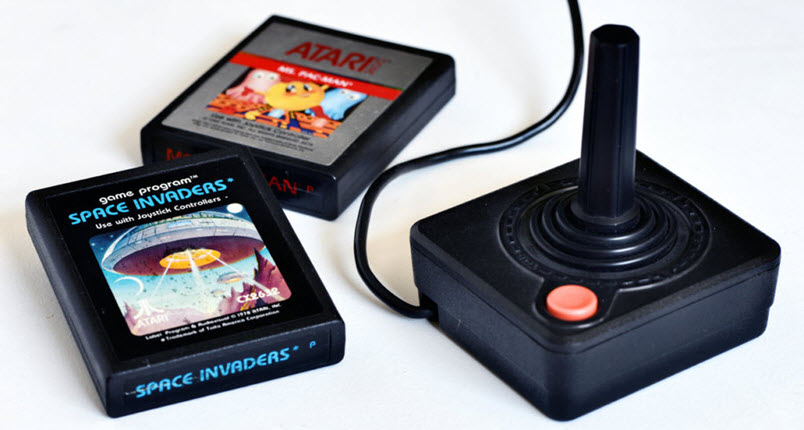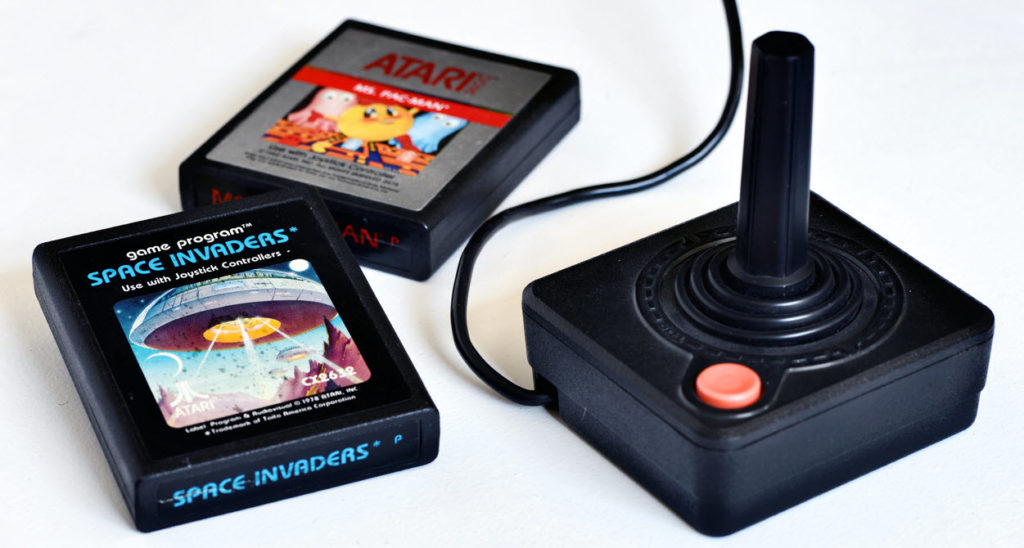| By J. Robert Parks |
A half-century ago, on June 27, 1972, the iconic video game company Atari was founded in California. Atari was named for a Japanese word commonly used by players of the ancient Chinese strategy game Go, and the company became one of the most significant early creators and popularizers of home video games. Gale In Context: U.S. History provides a wealth of resources for librarians and teachers about the development of video games, including content that helps students understand how video games fit into changes that were taking place in U.S. culture in the 1970s and 1980s.
Atari did not invent the idea of playing games on a television—Ralph Baer is credited with coming up with that idea in 1966—but Atari’s founder, Nolan Bushnell, did create the game Pong in 1972. It proved enormously popular at bars and arcades, and Bushnell launched Atari to market it. Two years later, Atari created a version that people could play at home on their television.
By the 1980s, Pong looked archaic. Today’s video game enthusiasts probably wonder what the attraction was. Yet Pong was an enormous hit, selling 150,000 copies. Even more, the game is largely credited with launching the home video game revolution. Pong was so popular that the much larger company Warner Communications purchased Atari in 1976 for $28 million and then began developing a home video game system that could play a variety of game cartridges. That was called the Atari Video Computer System, better known as the Atari 2600, and it was released in time for the holiday buying season in 1977.
For many kids of the time, the Atari 2600 transformed how they socialized with their friends. They no longer needed a pocket full of quarters to go down to the arcade to play video games, and they could practice and practice in advance of “friendly” weekend competitions. In 1980, the Atari 2600 introduced the home video version of the immensely popular arcade game Space Invaders, further solidifying Atari as the industry leader in home video games.
Atari became a victim of its own success. By 1980, the third-party video game company Activision had started producing games for Atari’s consoles, which ate into Atari’s profits. Activision was followed by a host of other companies, and the video game market was soon flooded. Worse, the industry went into a slump in 1983, diminished by price wars in both the console and game markets. By the time the industry recovered a few years later, the Japanese video game companies Nintendo and Sega were ready with their home console systems, and they soon dominated the market.
Atari didn’t live to see the recovery. Warner Communications had been thrilled with Atari’s success in the early 1980s when it was a $2 billion company and declared that the brand was the leader in “the cultural revolution that is video games.” But by 1984, Warner had sold Atari off for almost nothing, as it looked to shed the enormous losses that Atari was racking up.
In an attempt to reinvent itself, Atari tried to develop home computers, although it did later reenter the console market with the Atari 2600 Jr. None of those ventures had much success, and over the years the company’s intellectual property was sold to various game companies that didn’t seem interested in maintaining Atari’s standing as a brand. Nonetheless, the history of video games can’t be told without Atari, and such games as Asteroids, Pac-Man, and, yes, Pong live on in the memories of those lucky enough to have played them when they first came out.
About the Author
J. Robert Parks is a former professor and frequent contributor to Gale InContext: U.S. History and Gale In Context: World History who enjoys thinking about how our understanding of history affects and reflects contemporary culture.


